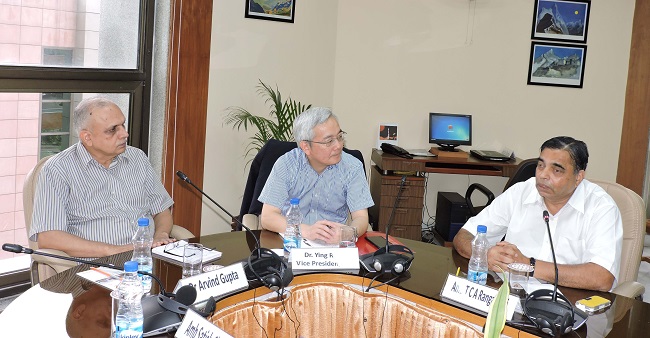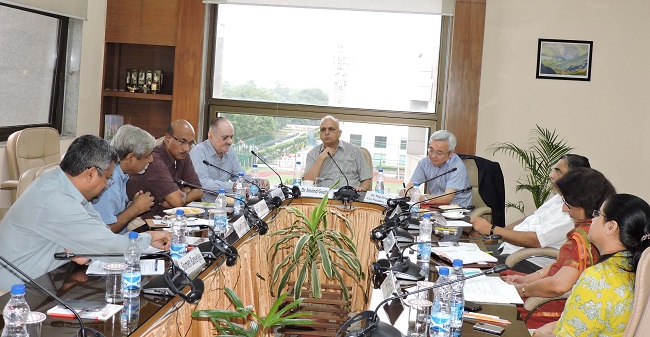The Vivekananda International Foundation hosted Dr Ying Rong, Vice President and Senior Research Fellow, China Institute of International Studies (CIIS), China, for an interaction on Sino-Indian relations. Dr Arvind Gupta delivered the opening remarks.
Dr Ying Rong gave a comprehensive overview of the course of the Chinese Foreign Policy. He mentioned that the Xi Jinping’s speech at the Central Conference on Work Relating to Foreign Affairs, the 40th anniversary of reform and opening up and the Boao Forum together form the blueprint of Xi Jinping’s thought on the Foreign Policy.

At the Central Conference on foreign policy, he introduced his thinking based on past five experience of diplomacy and also presented a roadmap for China’s diplomacy based on changes that have taken place in China and the world. His line of foreign policy constitutes a major section of his thought on building “Socialism with Chinese Characteristics” for the ‘New Era’. He indicated that as China enters a new era at home and abroad, it was imperative for China to come up with a new set of guidelines to address the new challenges. As China looks ahead, it realises the need to pursue an integrated approach and would continue to strive for a stable international environment and a good neighbourhood. Overall, China is looking forward to a balanced, nuanced, integrated and sustainable foreign policy approach.
On India-China relations, Dr. Ying Rong expounded that China was focusing on major-country relationship and the bilateral relations fits into this framework. Informal meeting was an important mechanism between the two countries as it provided both the leaders an opportunity to discuss their vision of bilateral relations. He proposed that both India and China can work together in institutions like the Asian Infrastructure Investment Bank (AIIB), New Development Bank (NDB) and also work together for reforming the World Trade Organisation (WTO). In conclusion, he reiterated that India-China cooperation was an important factor in the changing global situation and both the countries should join hands to make the international order more stable.

The presentation was followed by a stimulating round of discussion. Some of the issues raised during the discussion were as follows:-
- Historically, India and China had cordial relations. After 1962 India-China relation received a setback that was coupled by China’s aid to the nuclearisation of Pakistan.
- At present, Chinese foreign policy appears to be ambiguous. It is not clear as to for whose advantage China needs a favourable international order. Chinese interpretation of international law is also not clear.
- In the current scenario, it is not clear whether China is content with the international system. Is it a satisfied power or does it want fundamental changes in the structure?
- The increasing Chinese footprint in India’s neighbourhood is a matter of concern for India.
- The modalities of the India-China cooperation needs to be worked out. If both the countries decide to work together then they also need to strengthen each other’s positions at the global level as well. China should not see any advantage in blocking India’s candidature to the United Nation’s Security Council. Additionally, both sides should open their market to each other.
- On the issue of the border, the only way to solve it is through dialogue and in the interim it is pertinent to maintain peace and work constructively towards a solution.





Post new comment